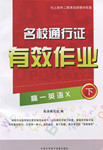题目内容
16.A new survey conducted by the National Geographic Society (NGS) shows that although consumers in many countries are adopting environmentally-friendly behavior,others live in wasteful cultures of consumption.The 2014online survey of 18,000people in 18countries judged environmental attitudes and habits-and their sustainability-when it came to housing,transportation,food and consumer goods.
1.Some consumer behavior is improving.
In half the countries surveyed,people acted in more environmentally-friendly ways than they had in 2012.For example,Russians are using more public transportation and British consumers are buying more green electricity.
But some countries reported that people's habits were less sustainable than in the previous survey.Around 68percent of Germans drink bottled water daily,and Canadians are among the most likely to own at least two car or trucks.
2.Anxiety about the environment is growing.
A slim majority of consumers-51percent-agree that global warming will negatively affect their own lives.Latin Americans are the most concerned,with more than three in four Brazilians convinced that climate change will impact them personally.
3.Americans resist going green.
Nearly one in four American households owns four or more TVs.Americans are also among the most likely to avoid paying extra for environmentally-friendly products,and they consume more packaged and processed food than people in most other countries.And since the 2012survey,more Americans are saying that they view owning a big house as an important goal in their lives.
4.The least green feel the least guilt.
As in past surveys,the worst offenders express the least guilt about the size of their environmental footprint.British,German and Swedish consumers not only feel the least regret but also are the most likely say they won't change their ways.
5.Repairing,reusing and recycling are on the rise.
Majorities in 17of the 18countries say they'd rather repair than replace a broken item,with Chinese and German consumers the most likely to fix something and Japanese consumers the least likely.American and French consumers are the most likely to buy used items; Canadian,British,and Australian consumers are the biggest recyclers.
29.The author's purpose in mentioning Germans isD.
A.to say that dinking bottled water is not environmentally-friendly at all
B.to point out that bottled water is a less sustainable product
C.to emphasize that Germans should change their habits
D.to explain that people in some countries have some less sustainable habits
30.Which of the following is TRUE about the survey results?B
A.Japanese consumers are among the biggest recyclers.
B.The majority of Brazilians believe climate change will affect their lives.
C.Chinese and Canadian consumers like to repair broken items.
D.Used items are popular with French and British consumers.
31.What can we learn about Americans from the passage?B
A.Three in four American families don't have TV sets.
B.Many of them dream of owning a big house.
C.They think green products are too expensive.
D.They prefer packaged and processed food to health food.
分析 NGS实施了一份调查,结果显示虽然在很多国家大部分消费者都提倡环保的生活方式,但是在有一些国家还是存在浪费现象.
解答 DBB
29.D 细节题.根据But some countries reported that people's habits were less sustainable than in the previous survey可知,在一些国家报道人们的习惯比以前的调查更不可持续,紧接着提到Germans,所以目的是举例子来证明观点,故选D.
30.B 细节题.在文章中more than three in four Brazilians convinced that climate change will impact them personally这句话告诉我们比利时有四分之三的人关心气候变化会影响他们的生活,故B说法符合句意.最后 一段Japanese consumers the least likely推出A错误; Chinese and German consumers the most likely to fix something 这句推出C错误;American and French consumers are the most likely to buy used items推出D错误.
31.B 细节题.根据第三个小标题more Americans are saying that they view owning a big house as an important goal in their lives.可知,越来越多的美国人说他们把拥有大房子当做生活中重要的事情,故选B.
点评 做阅读理解时要快速的浏览全文,把握文章主旨大意,带着问题回到原文,寻找细节或概括相应的答案,最后要理清作者写作思路.

 名校通行证有效作业系列答案
名校通行证有效作业系列答案My mom and I were at the(43)A for quite some time when we decided to go back.It is(44)D that we would reach the hotel after walking for about ten(45)C.My mom asked her friend(46)Cour sandals(凉鞋)were-we were still at the beach.Her friend pointed(47)D some direction,and my mom then went there.However,soon mom(48)C we were lost.
We were now in a quite a big(49)A.And since it was noon,the ground was (50)B hot and my mom had to carry me.I was scared.I didn't understand then our(51)D-mom was in a big jungle with her 9-year-old kid and completely lost.
I was (52)Band didn't know what to do.So I began to (53)B.As a child,the only prayer I knew was"Our Father"and"God Our Protector".(54)A which of the two I prayed,but I did remember my mother (55)A me that as soon I had finished praying,a woman stood before my mother.The woman gave mom her sandals and told my mom that she had (56)C an entire village and currently was in a (57)C village.That woman (58)D took us back to the hotel we were staying at.
A(59)Aact makes a big difference.I will remember that(60)D woman for ever.It was she who helped mom back then.
| 41.A.broke out | B.took place | C.occurred to | D.broke down |
| 42.A.spring | B.summer | C.autumn | D.winter |
| 43.A.beach | B.jungle | C.hotel | D.village |
| 44.A.regular | B.ordinary | C.unusual | D.normal |
| 45.A.seconds | B.days | C.minutes | D.weeks |
| 46.A.that | B.when | C.where | D.what |
| 47.A.for | B.from | C.to | D.in |
| 48.A.announced | B.ignored | C.realized | D.remembered |
| 49.A.jungle | B.desert | C.village | D.river |
| 50.A.hardly | B.quite | C.ever | D.never |
| 51.A.benefit | B.question | C.state | D.trouble |
| 52.A.confident | B.afraid | C.intelligent | D.brave |
| 53.A.shout | B.pray | C.scream | D.yawn |
| 54.A.forgot | B.understood | C.explained | D.ignored |
| 55.A.telling | B.warning | C.blaming | D.apologizing |
| 56.A.walked | B.jumped | C.crossed | D.flew |
| 57.A.dangerous | B.same | C.different | D.grand |
| 58.A.accidently | B.disappointedly | C.freely | D.safely |
| 59.A.small | B.funny | C.elegant | D.possible |
| 60.A.outstanding | B.easygoing | C.beautiful | D.kind |
| court,suit,serve,take advantage of,set off |
57.Teacakes shouldbe servedhot with butter.
58.There's a range of restaurants tosuitall tastes.
59.My mother would say if you,really want something,you work hard,youtake advantage ofopportunity,you never give up,you find a way.
60.I hope they do their best on thecourt.
| A. | whether | B. | where | C. | that | D. | what |